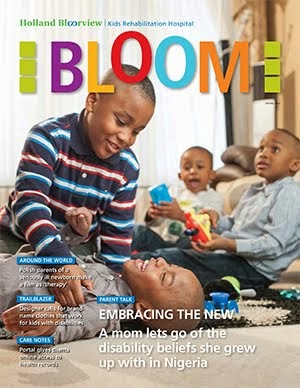
I was surprised to see this "sell" to a story on the front page of The New York Times today:
"A New York State assemblyman who is a prominent advocate for people with disabilities plans to sue the organization that cares for his retarded son."
I turned inside to page 18 and read this lead:
"Ricky Weisenberg, 54, is severely retarded, cannot speak or even cry, and has cerebral palsy. But his parents know their way around the system: his father, Harvey Weisenberg, is a state assemblyman and the Legislature's most prominent advocate for people with disabilities."
I don't have access to the New York Times Manual of Style and Usage, so I wasn't able to look up its specific counsel on use of the word "retarded" by reporters.
But I was able to find this passage in the manual's foreword, which is visible on Amazon.com.
"This [style manual] counsels respect for group sensibilities and preferences that have made themselves heard in the last two or three decades -- concerns, for example, of women, minorities and those with disabilities. The manual favors constructions that keep words neutral..."
I think the preference of people with developmental or intellectual or mental disabilities and their families was made clear when over 300,000 people signed a pledge "to eliminate the demeaning use of the R-word" in the Spread the word to end the word campaign by Special Olympics.
Furthermore, if staff were looking for neutral language to describe Ricky Weisenberg, this would have sufficed: Ricky Weisenberg, 54, has cerebral palsy. He cannot speak or even cry. Nothing is lost in the visual image these words conjure in the reader's mind.
So just how did the word "retarded" get by whoever proofed today's front page of The New York Times and whoever edited page 18? Interestingly, the word is not used in the headline for the story, which reads: Lawmaker to File Suit Charging Abuse of His Disabled Son.
As a journalist, I get that people-first or politically correct language isn't always possible in headlines due to space limits. But the word "retarded" and the word "disabled" both add up to eight letters, so if the word "retarded" was that important for the front page and the lead of the story, why not the headline?
Who decided to use the word "disabled" in the headline, instead? Was it simply a wordsmith who was trying to ensure variety in word usage (not too many repeats on the word "retarded")? Or did someone feel that "retarded" wasn't a fitting descriptor for a person in a headline?
Or perhaps whoever wrote the headline made the connection that the story was about the alleged physical and psychological abuse of a vulnerable, middle-aged man in a group home -- a voiceless man who couldn't even express his anguish in tears -- and decided that referring to that man as "retarded" was not neutral or respectful.
I went online tonight and saw that in the online version, the word "retarded" in the story had been changed to "has a severe mental disability."
It would be fascinating to hear the back story on how this came about and why. Louise
























6 comments:
I'm glad that at least they changed the online story. This is terrible.
Margaret
There's also an article in the NY Times today about an institution in Georgia -- and they use the word "mentally retarded" AND "wheelchair-bound." Astonishing. I wondered if perhaps the death of Sulzberger this weekend had thrown the whole staff into a tizzy.
This story is one of those that just makes my shoulders fall forward. It's so discouraging that the NYT of all papers is still using this word. It is derogatory and demeaning. You have to live under a rock to not know that. Geez!
Let them know. The story is what frightens me. If this man who is quite prominent and well regarded by the home where his son lives, cannot get care for his son. I'm glad he is suing as it puts these places and employees on notice. I suspect there is alot of this abuse going on.
Update -- I've written to the reporter, the Public Editor and Assemblyman Harvey Weisenberg, Ricky's father. I'll let you know what I hear!
Mind-boggling. It shows JUST how far we still have to go. Thank you for emailing them all.
Post a Comment